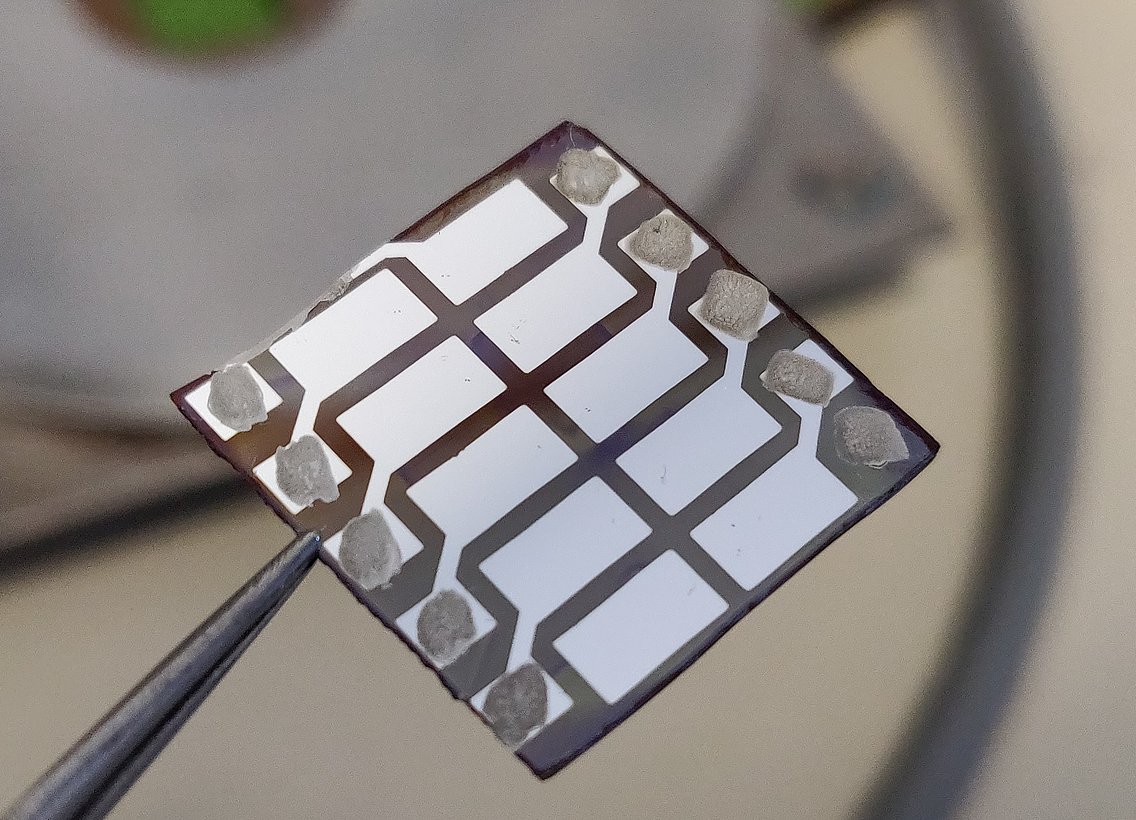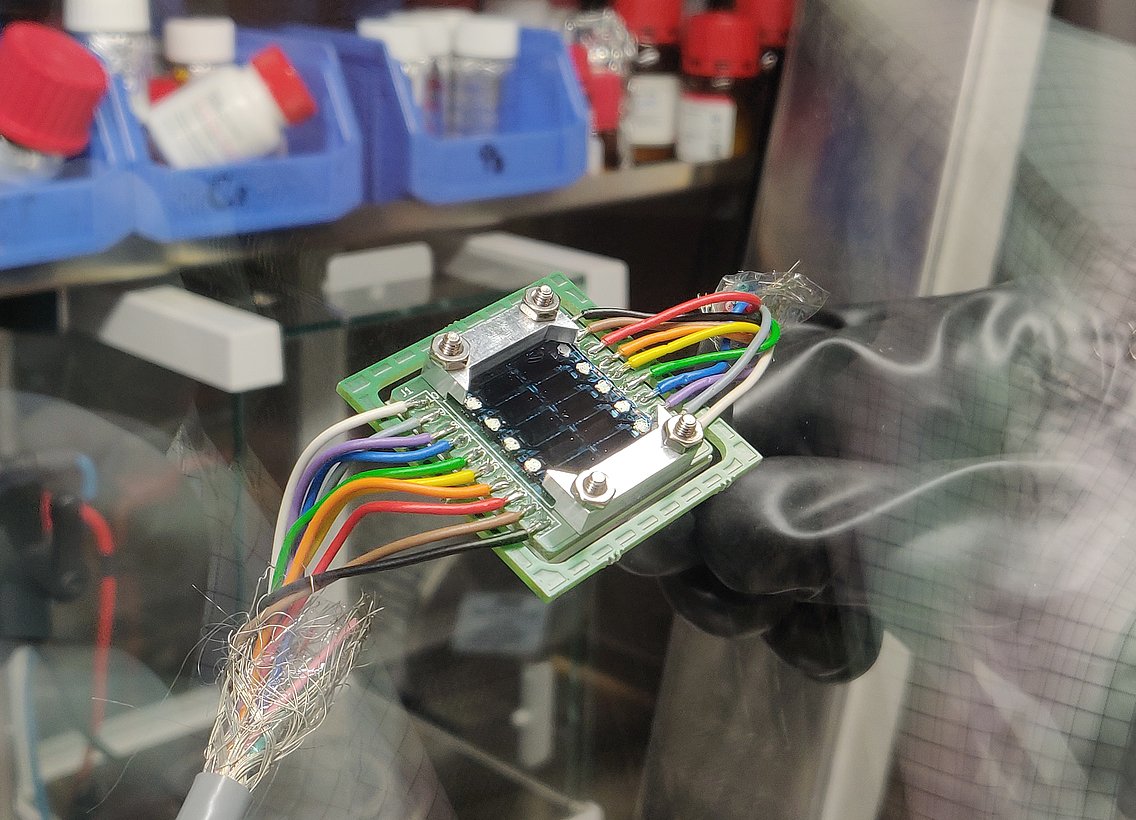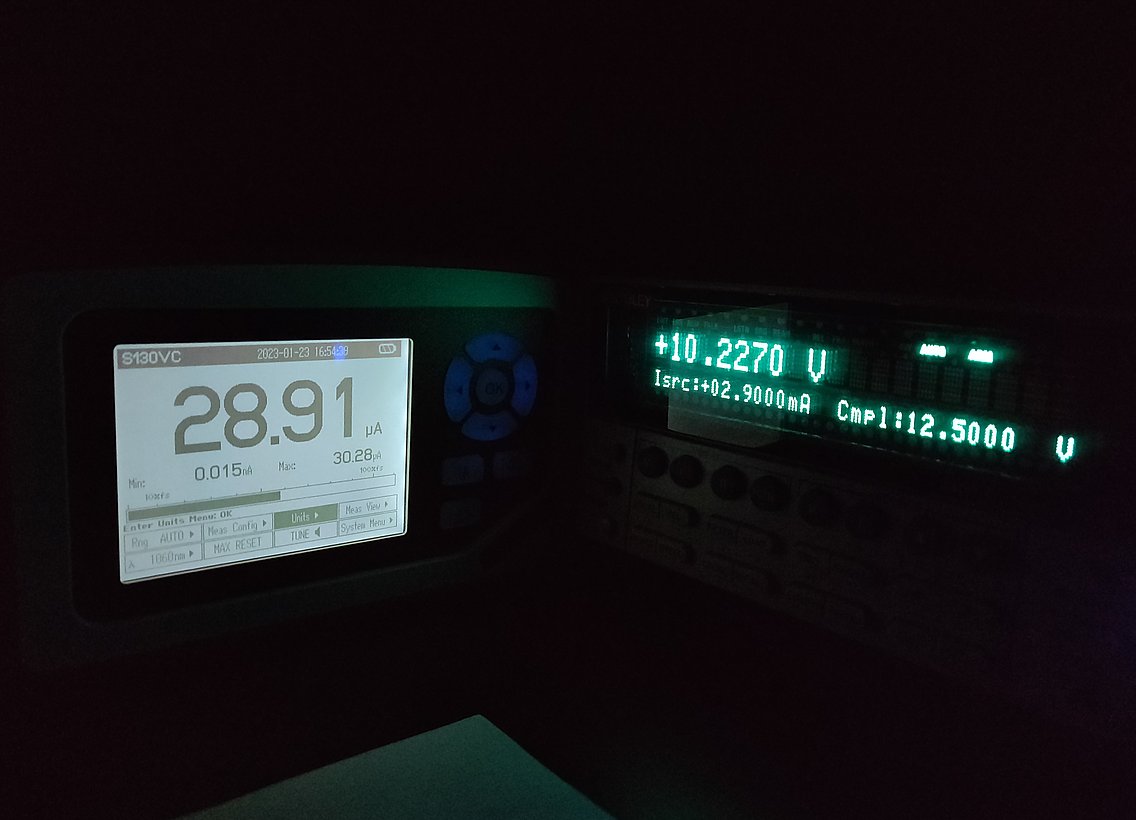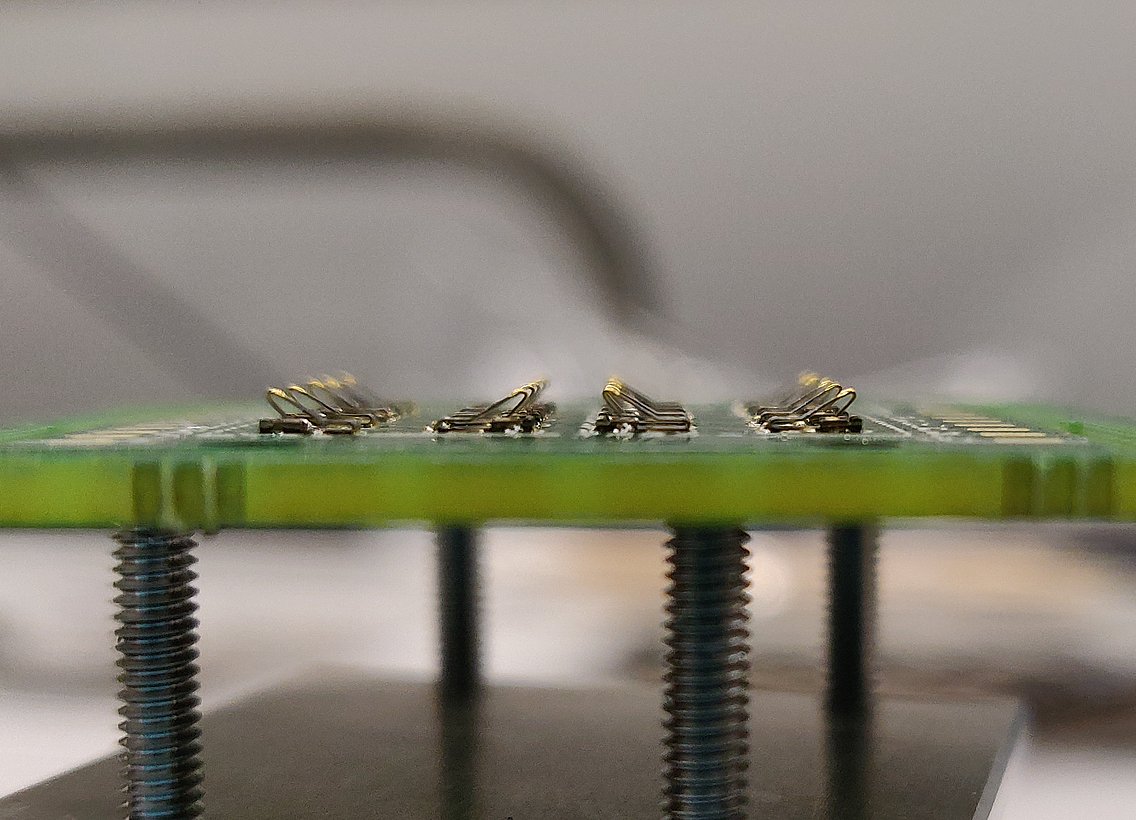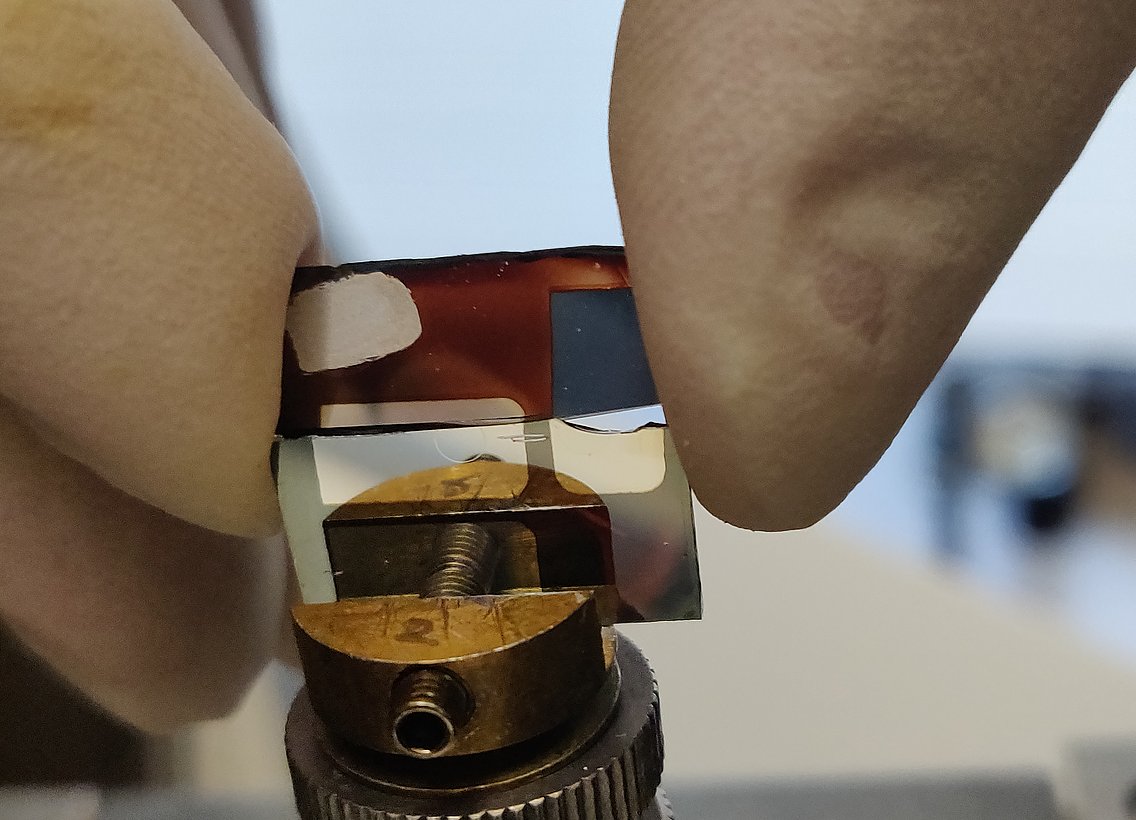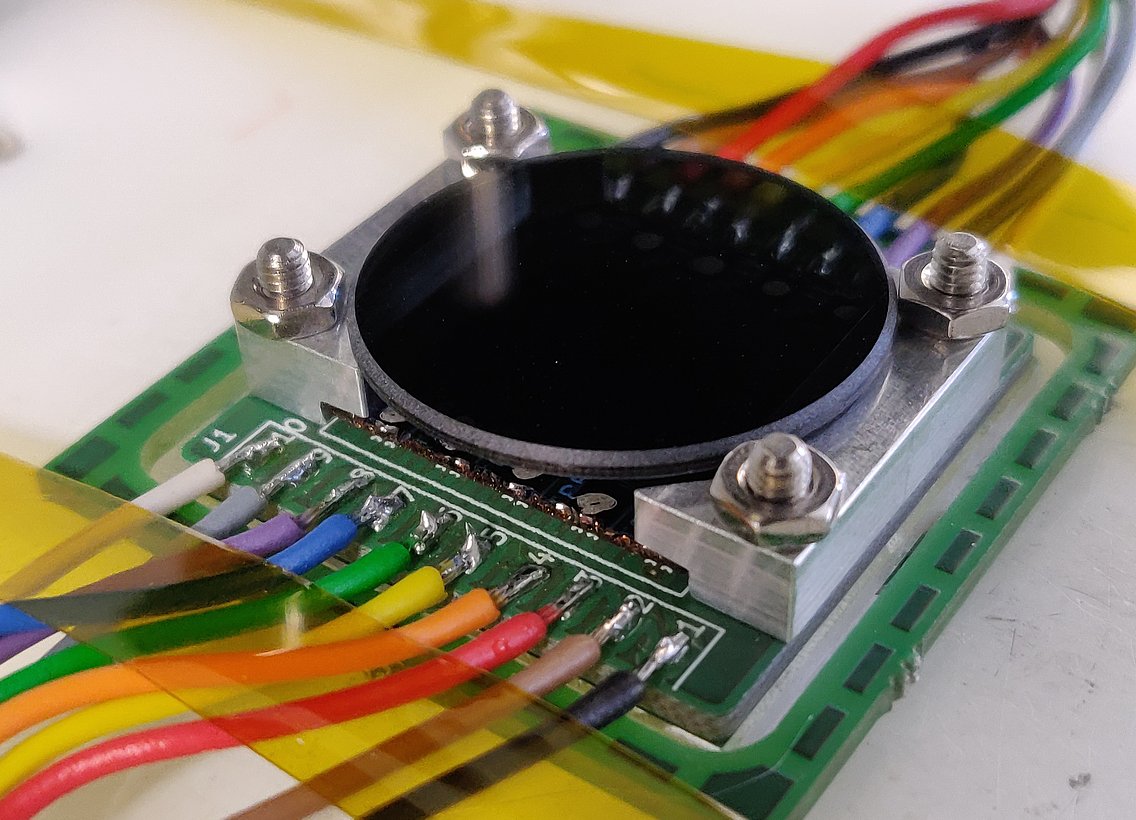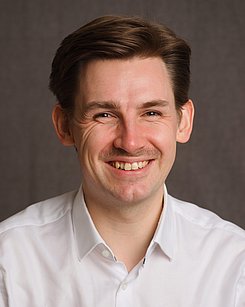The Project’s Overview
![[Translate to English:] Projektlogo des FOXES-Projekt](/fileadmin/Abteilung/LFEB/Projekte/FOXES/FOXES.png)
The acronym FOXES stands for the project title “Fully Oxide-based Zero-Emission and Protable Energy Supply“. Within this EU-project we develop in collaboration with our project partners
- Materials Center Leoben GmbH (Austria)
- AMO GmbH (Germany)
- UNINOVA – Instituto de Desenvolvimento de Novas Tecnologias (Portugal)
- Universitat de Barcelona (Spain)
a device of approx. 20x20mm² lateral dimension, which powers itself via room illumination. The gained energy is then used to take measurements of air quality and to transfer these data wirelessly.
Contribution of the University Wuppertal
The Chair of Electronic Devices provides it's expertise in thin film solar cells and researches within this project a lead-free solar cell that delivers a voltage of four volt under usual room illumination (ca. 400 lux). The efficiency has to be minumum ten percent, wich translates to six micor watts per square centimeter.
Further Information and Project Flyer
![[Translate to English:] Deckblatt des Flyers](/fileadmin/Abteilung/LFEB/Projekte/FOXES/FrontFlyer.png)
The project is coordinated by Anton Köck of the Materials Center Leoben GmbH. Contacts and further information can be found in the flyer or on the project's website.
Thesis In This Project
- This project sounds exciting? We are looking for enthusiastic students, also for theses.

